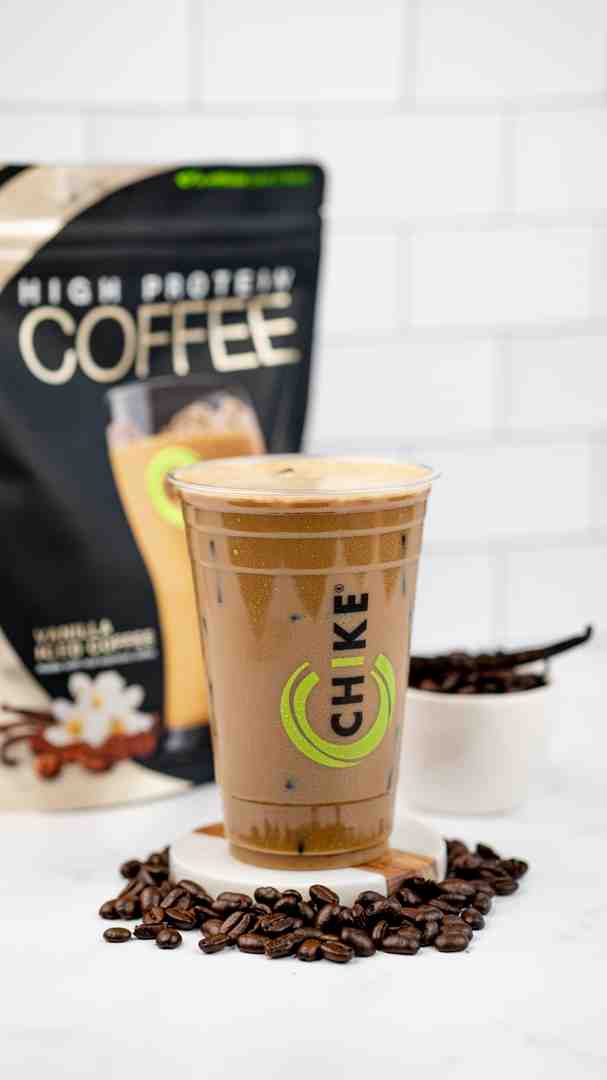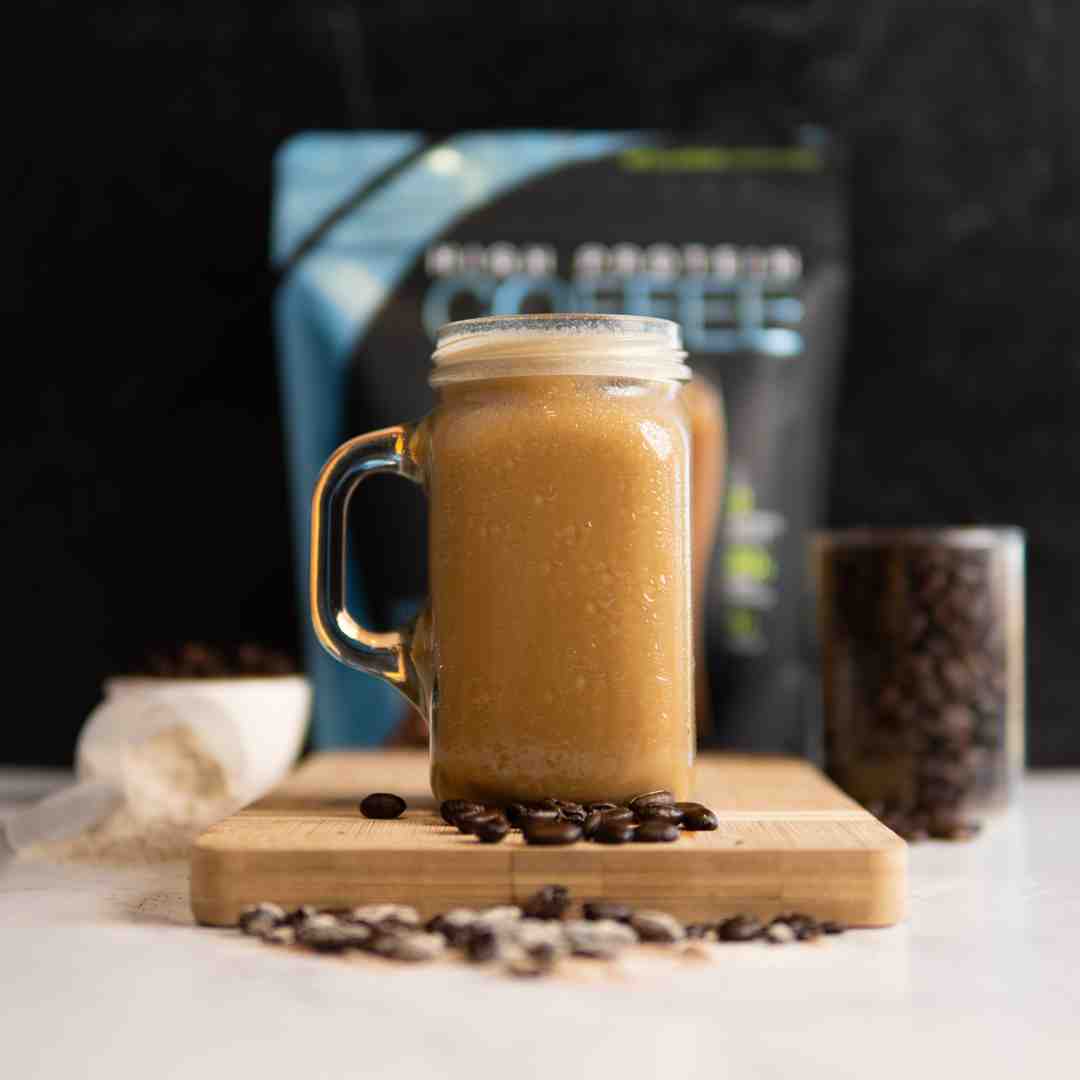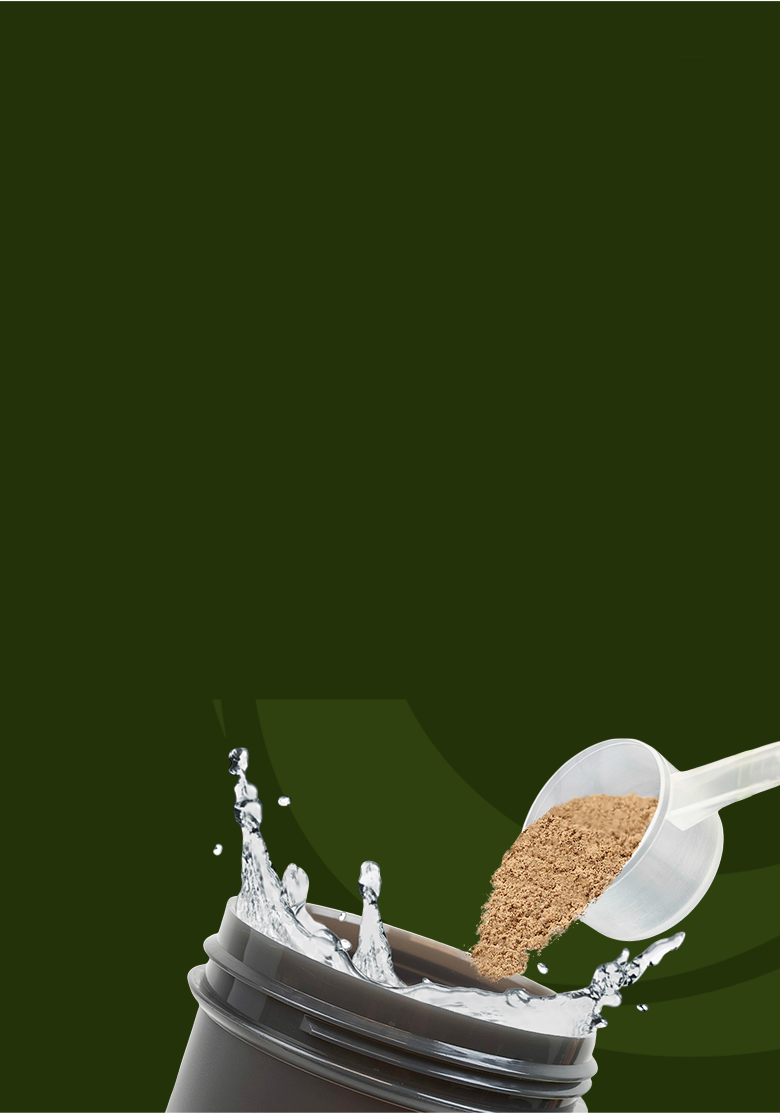Wake Up Your Taste Buds Without the Caffeine
Looking for the best tasting decaf coffee options that don't sacrifice flavor? Here are the top choices based on expert testing and customer reviews:
- Premium Specialty Decaf Blend - Most vibrant and complex flavor
- Artisanal Medium Roast Decaf - Best medium roast with cherry and chocolate notes
- Single-Origin Light Roast Decaf - Best light roast with bright, fruit-forward profile
- Smooth Balanced Decaf - Exceptional balance with Key lime notes
- Bold Dark Roast Decaf - Best dark roast with bold, full-bodied flavor
The quest for best tasting decaf coffee has come a long way from the disappointing, watery cups of the past. Today's decaf options use advanced processes like Swiss Water and sugarcane-based methods to preserve those complex flavor notes you love while removing up to 99.9% of the caffeine. The result? Rich, aromatic brews that can genuinely surprise even the most devoted caffeine enthusiasts.
I'm Mac Mascorro (https://www.linkedin.com/in/macmascorro/), and through my years leading teams and projects in the health and wellness space, I've developed a passion for helping people find best tasting decaf coffee options that deliver both exceptional flavor and health benefits without compromise.
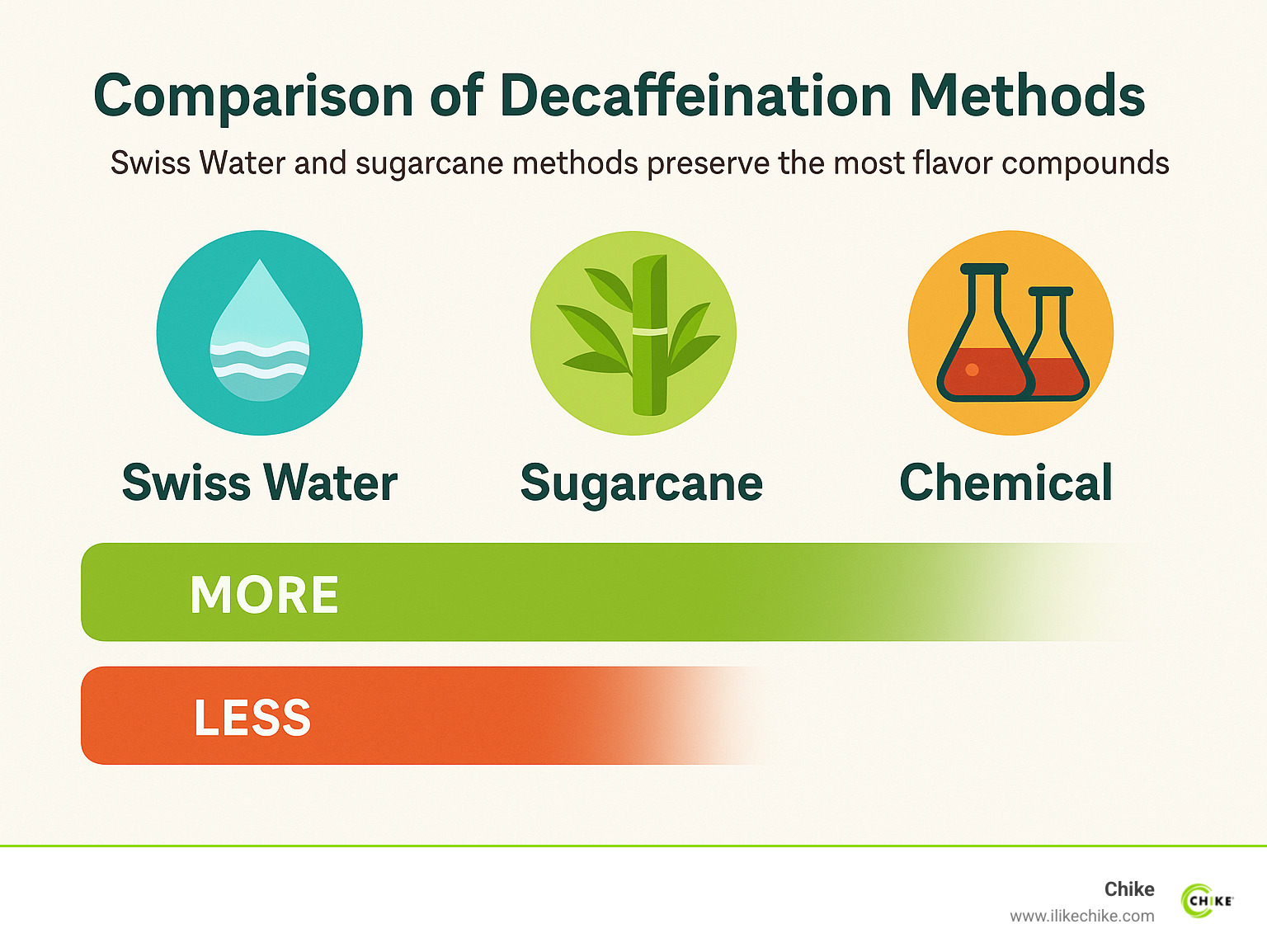
Why Does Decaf Taste Different?
Ever wondered why your best tasting decaf coffee doesn't quite match the flavor profile of its caffeinated twin? It's not your imagination – there's real science behind those subtle differences.
When coffee beans undergo decaffeination, it's like sending them on a spa treatment that changes them in subtle ways. The process doesn't just remove caffeine – it can affect the delicate balance of volatile oils and aromatic compounds that create coffee's complex symphony of flavors. Historically, this led to decaf's unfortunate reputation as coffee's bland, watery cousin.
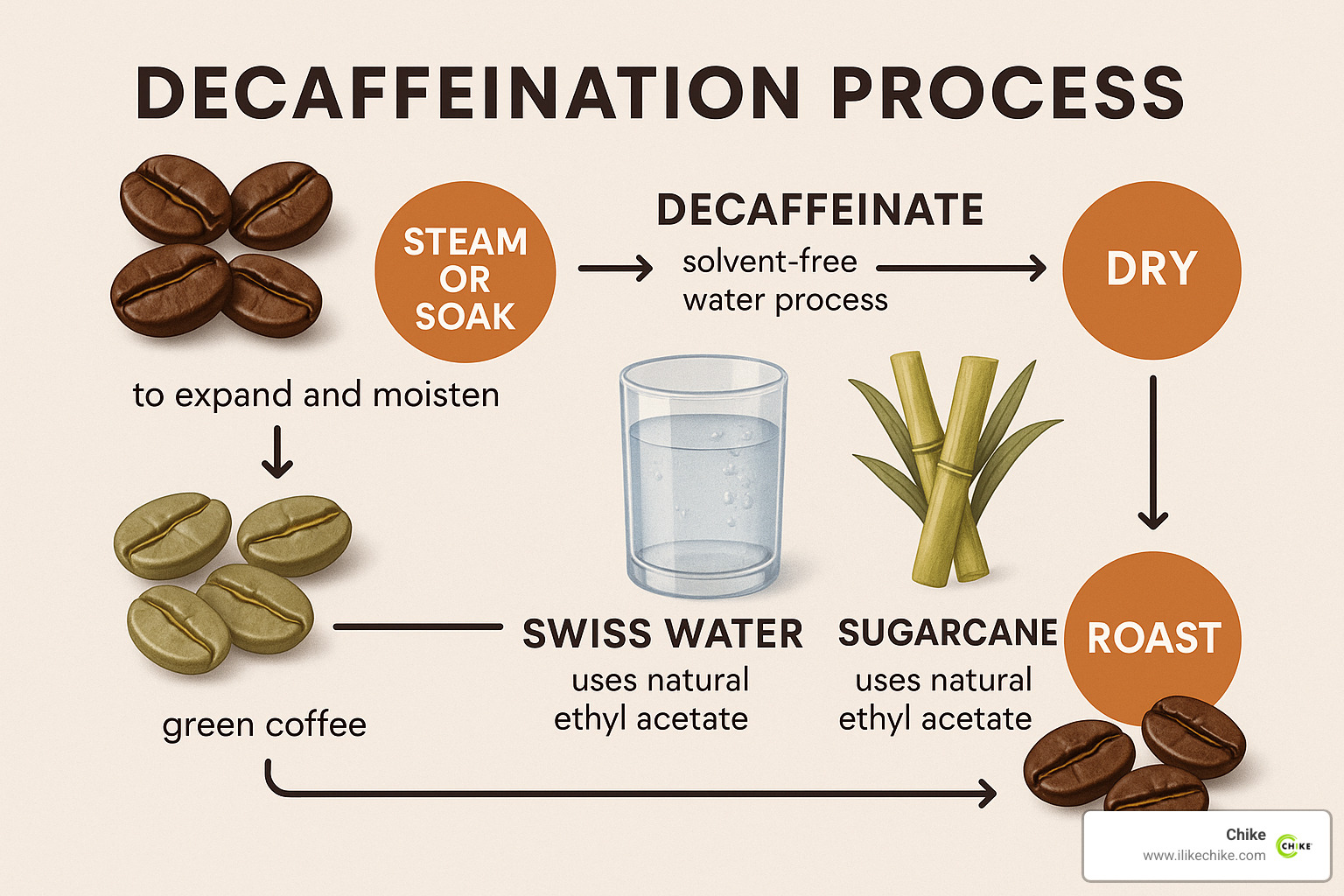
The good news? Modern decaffeination techniques have evolved dramatically. Today's premium decaf options preserve up to 99.9% of the coffee's original flavor compounds while bidding farewell to the caffeine. This means that finding best tasting decaf coffee no longer requires lowering your flavor expectations – just knowing which processes and brands prioritize taste.
The Science in a Sip
Dig a little deeper into your decaf cup, and you'll find fascinating chemistry at work:
Chlorogenic acids play a starring role in coffee's bright, acidic notes. Some decaffeination methods can reduce these compounds, resulting in a gentler, sometimes flatter taste profile. This explains why some decafs feel smoother but less vibrant on the palate.
Your perception of sweetness changes without caffeine's natural bitterness balancing the equation. Caffeine itself contributes to flavor, and without it, other taste elements step forward. This shift isn't necessarily bad – just different, with many coffee lovers appreciating the milder, less bitter profile.
Even the best tasting decaf coffee contains trace caffeine (typically 2-18mg per cup versus regular coffee's 100mg). This small amount affects both the mouthfeel and subtle flavor notes in ways most of us don't consciously register.
Smart coffee roasters understand these differences and often adjust roasting profiles specifically for decaf beans. They might roast slightly darker to improve body and sweetness, compensating for changes that occur during decaffeination.
The flavor gap between regular and decaf coffee has narrowed significantly in recent years. With careful selection and proper brewing, today's premium decafs deliver rich, complex flavors and satisfying body that can genuinely surprise even devoted caffeine enthusiasts. For those looking to reduce caffeine while maintaining their coffee ritual, there's never been a better time to explore best tasting decaf coffee. Learn more about the science behind decaffeination in this informative article from the National Coffee Association.
Decaffeination Methods That Protect Flavor
The secret to a truly satisfying cup of decaf lies in how those beans lost their caffeine in the first place. The decaffeination method is like the foundation of a house – get it right, and everything else falls into place. Let's explore the methods that consistently produce the best tasting decaf coffee you can enjoy any time of day:
Swiss Water Process
Imagine a gentle spa treatment for coffee beans. This chemical-free method uses only water, carefully controlled temperature, and patience to coax caffeine molecules out while leaving the good stuff behind. The magic happens through osmosis – beans soak in a green coffee extract that's already full of flavor compounds but free of caffeine, so only the caffeine molecules want to leave the beans.
The result? A clean, well-balanced cup that honors the coffee's original character. Many coffee lovers describe Swiss Water decaf as having a smoother, sometimes almost tea-like quality that's incredibly pleasant to sip.
Mountain Water Process
Born in the mountains of Mexico, this method shares principles with Swiss Water but uses pure mountain water to do the heavy lifting. What's special here is how it maintains the integrity of the bean's cellular structure – think of it as removing the caffeine while leaving the bean's "personality" intact.
When you brew Mountain Water decaf, you'll notice it retains much of the coffee's original flavor profile with minimal loss of complexity. The cup tends to be bright and clean, with those distinctive origin characteristics that make coffee so fascinating.
CO₂ (Sparkling Water) Process
This clever method uses the same carbon dioxide that puts the fizz in your sparkling water, but under pressure. The CO₂ acts like a selective magnet, bonding with caffeine molecules while leaving most flavor compounds untouched.
The CO₂ process shines at preserving brightness and clarity in the cup. Many specialty coffee roasters reach for this method when they want to offer a decaf that doesn't taste like it's missing something.
Sugarcane (Ethyl Acetate) Process
Nature provides its own solutions! This method uses a solvent derived from sugarcane to gently remove caffeine. You'll often see these coffees labeled as "naturally processed" or "EA processed" decaf.
Coffee professionals frequently rave about sugarcane process decafs, with many claiming they produce the best tasting decaf coffee available today. The method seems to improve sweetness while preserving fruity notes – making it particularly wonderful for showcasing vibrant single-origin coffees.
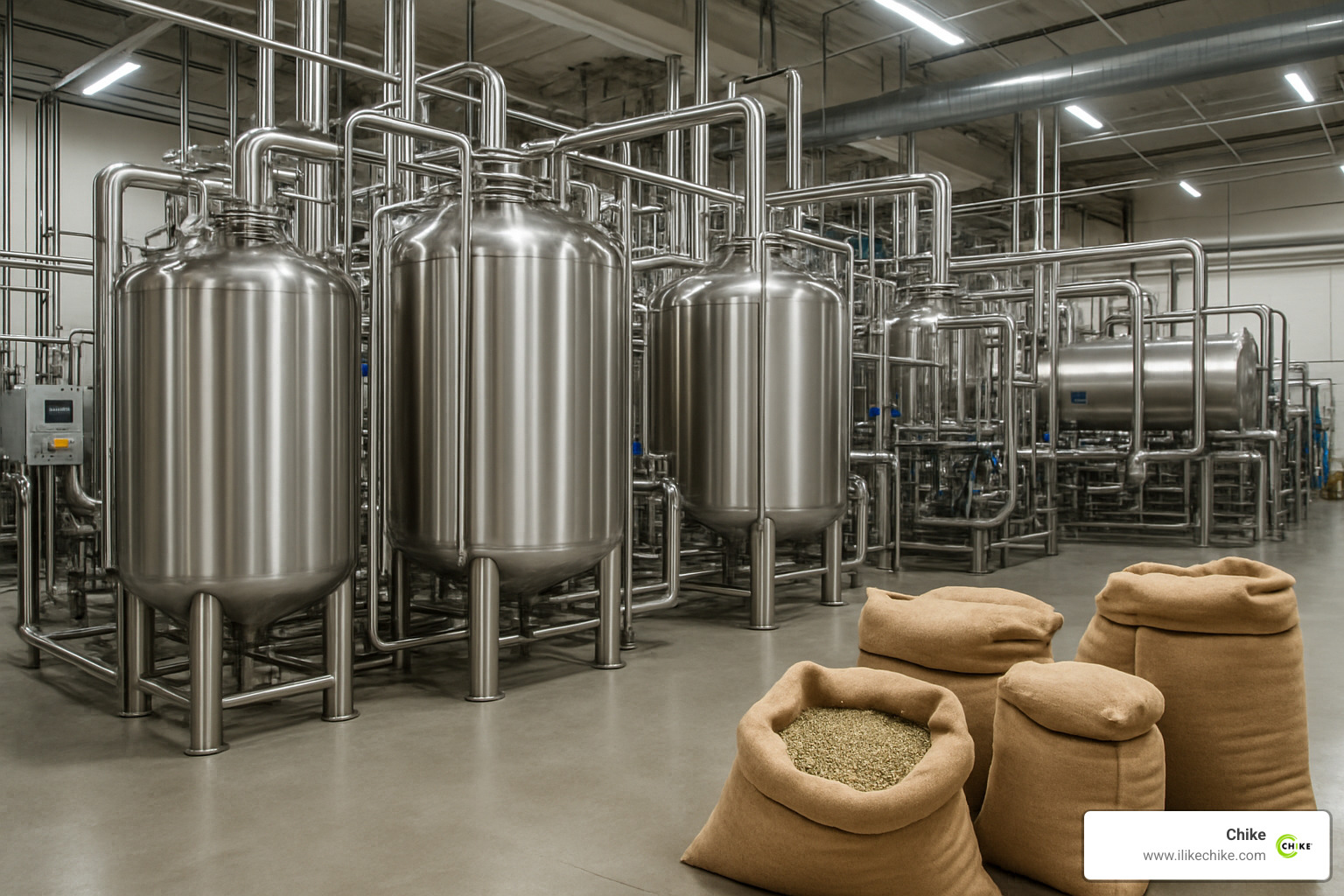
Best Tasting Decaf Coffee Begins Here
These gentle methods can remove up to 99.9% of caffeine while maintaining what makes each coffee special. It's like removing the caffeine while keeping the soul of the coffee intact.
In blind taste tests, coffees processed with Swiss Water and sugarcane EA methods consistently win top marks for flavor preservation. This isn't surprising when you consider how carefully these methods work to protect what makes coffee wonderful.
As more of us seek clean-label products without unnecessary chemicals, coffee roasters have been perfecting these gentler decaffeination techniques. When you're hunting for the best tasting decaf coffee, look for clear labeling of the decaffeination method – quality-focused roasters are proud to share this information because they know it matters to the final cup.
For those who love the rich, complex flavors of coffee but are mindful of their caffeine intake, these modern decaffeination methods offer the perfect solution. Pair your favorite decaf with a protein-rich option like Chike's decaf protein coffee for a truly satisfying experience that nourishes both body and soul.
Best Tasting Decaf Coffee Styles & Picks
The world of decaf coffee is surprisingly diverse and exciting! Whether you're new to caffeine-free brewing or a seasoned decaf enthusiast, there's a perfect cup waiting for you. Let's explore the rich landscape of options that will delight your taste buds without the caffeine jitters.
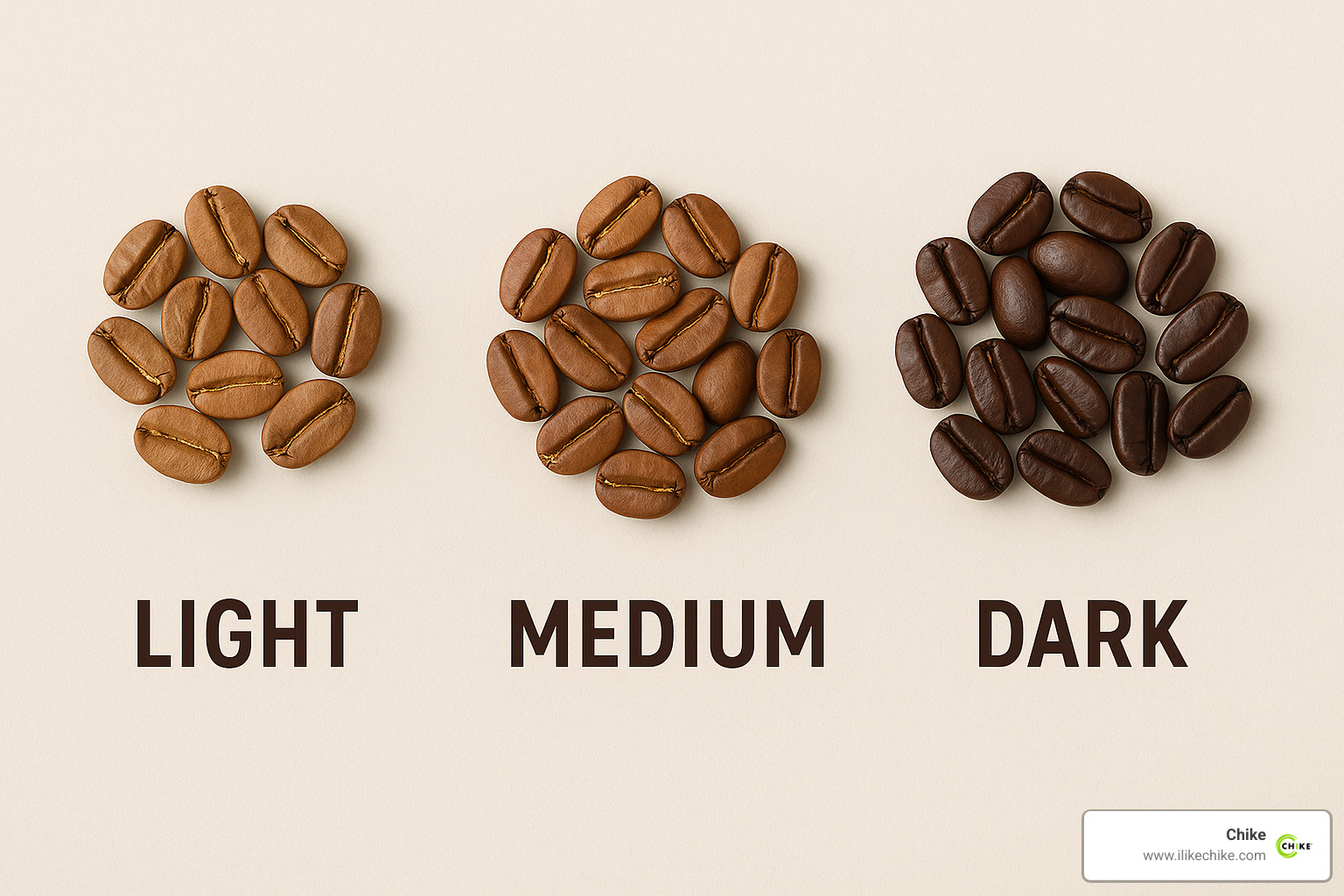
Light & Lively – "best tasting decaf coffee" for subtle palates
If you appreciate nuance and brightness in your coffee, light roast decafs might be your perfect match. These delicate brews preserve the bean's original character while letting subtle flavors shine through.
When you sip a quality light roast decaf, you'll notice bright acidity with hints of citrus that dance on your tongue. Many coffee lovers are surprised by the floral aromatics – think jasmine or bergamot – that waft from their cup. The silky mouthfeel might be lighter than darker roasts, but the neat texture creates a truly sophisticated experience.
What makes these light roasts special is how they challenge the old stereotype that decaf must be dark and one-dimensional. When processed through methods like sugarcane or Swiss Water, they retain those fascinating origin-specific characteristics that make coffee so fascinating.
For brewing these delicate gems, reach for your pour-over setup. A V60 or Chemex will showcase those subtle notes beautifully. Use water just off the boil (around 200°F) with a medium-fine grind to extract all those lovely flavors without bitterness.
Everyday Medium – "best tasting decaf coffee" crowd-pleaser
Medium roast decafs hit that sweet spot that satisfies most coffee drinkers. They're the versatile, reliable friends in your coffee cabinet that never disappoint.
The flavor profile typically features comforting chocolate notes ranging from milk chocolate to rich cocoa. You'll also enjoy a natural caramel sweetness reminiscent of brown sugar or toffee. What makes medium roasts so popular is their balanced cup – moderate acidity paired with a satisfying body that feels complete and fulfilling.
These roasts represent the perfect middle ground in decaf coffee. They have enough roast character to mask any potential process flavors while still allowing the coffee's natural qualities to shine through. If you're new to decaf or brewing for a group with different preferences, medium roasts are your safest bet for universal enjoyment.
Medium decafs are wonderfully versatile in brewing. They perform beautifully in everything from automatic drip machines to French press. They're particularly excellent for cold brew, where their natural sweetness becomes even more pronounced during the long extraction process.
Bold Dark & Espresso Lovers
For those who crave intensity and richness, dark roast decafs deliver a bold experience without the caffeine kick. These robust coffees stand up proudly against their caffeinated counterparts.
Dark decafs feature a smoky-sweet profile with notes of caramelized sugar, dark chocolate, and toasted nuts. When used for espresso, quality dark decafs can produce impressive thick crema that rivals regular espresso. The full body provides a substantial mouthfeel that holds up beautifully to milk and creates satisfying lattes and cappuccinos.
What makes dark roasts particularly special in the decaf world is how the deeper roasting can mask some of the subtle flavor differences that decaffeination might introduce. This makes them an excellent choice for those transitioning from regular to decaf coffee who want a familiar experience.
These coffees truly shine when brewed in espresso machines, Moka pots, and French presses. The pressure and immersion methods extract all those rich oils that give dark roasts their characteristic boldness. And if you're looking to create protein-packed coffee treats, dark decafs provide that robust coffee flavor that stands up beautifully to other ingredients.
When selecting the best tasting decaf coffee for your preferences, consider not just the roast level but also whether you prefer the distinctive characteristics of single-origin coffees or the carefully crafted consistency of blends. Both can deliver exceptional experiences when properly processed and roasted.
Looking for a way to enjoy your favorite decaf with added nutrition? Consider pairing your brew with protein-rich options like Chike's high-protein coffee drinks for a delicious way to support your health goals while enjoying fantastic coffee flavor.
Brewing & Storage Hacks for Maximum Flavor
Even the best tasting decaf coffee needs a little TLC to shine its brightest. I've finded through years of coffee exploration that how you brew and store your beans can make or break your decaf experience. Let's explore some practical tips that'll transform your cup!
Grinding Matters More Than You Think
Decaf beans have a different structure than their caffeinated cousins – they're more porous and slightly more brittle. This seemingly small difference actually changes how you should handle them.
Always grind your beans fresh right before brewing. Pre-ground decaf loses its delicate flavors at warp speed compared to whole bean. I learned this the hard way after wondering why my morning cup tasted flat despite splurging on premium beans!
When setting your grinder, start with your normal setting, then go just a touch coarser for decaf. And don't forget to clean your grinder regularly – decaf beans leave behind oils that build up differently and can affect flavor over time.
Water Quality & Temperature
Decaf beans are like the sensitive artists of the coffee world – they react strongly to their environment. Using filtered water makes a remarkable difference in letting those subtle flavors shine through. The chlorine and minerals in tap water can easily overpower decaf's more delicate profile.
For temperature, aim for the sweet spot between 195-205°F (90-96°C) for hot brewing methods. Too hot and you'll extract bitter compounds; too cool and you'll miss out on essential flavors.
Start with the classic Gold Cup ratio of 1:16 (like 15g coffee to 240ml water) and then adjust to your personal taste. Decaf often benefits from a slightly stronger ratio since some compounds that contribute to perceived strength are reduced during decaffeination.
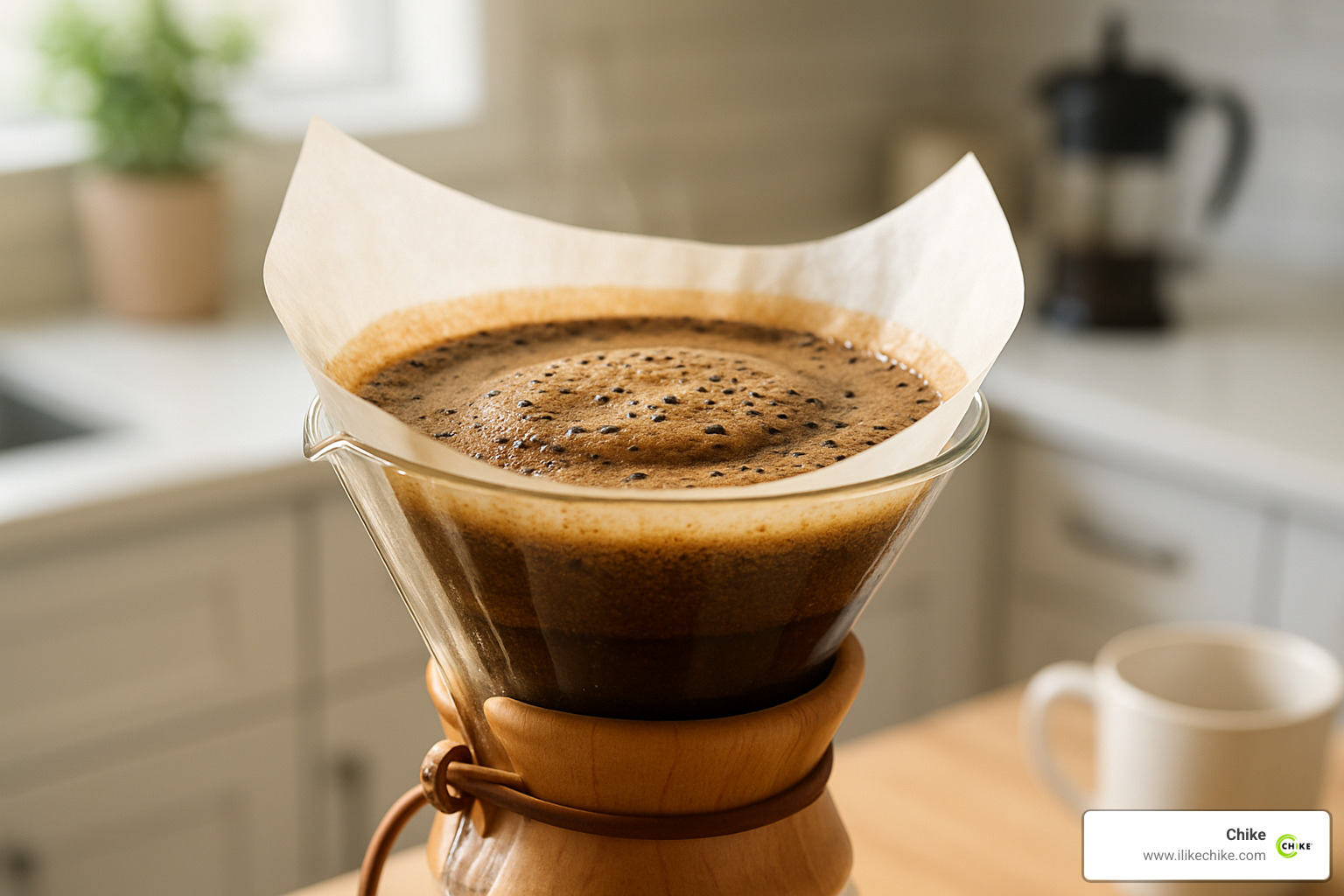
Cold Brew Magic with Decaf
Did you know decaf makes fantastic cold brew? It's true! The slow extraction method brings out wonderful chocolate and nut notes that might get lost in hot brewing. Just make a few adjustments to your regular cold brew routine:
Give your decaf more time to steep – add 4-6 hours beyond your normal timing. I typically let my decaf cold brew steep for a full 18-24 hours in the fridge. Use a more concentrated coffee ratio (try 1:4 or 1:5 instead of the typical 1:7 or 1:8), and opt for a slightly coarser grind than you would for regular cold brew.
The result? A smooth, rich concentrate that works beautifully over ice or with a splash of your favorite milk.
Storage for Freshness
Decaf's altered cellular structure makes it more vulnerable to going stale. Treat your beans right with these simple storage tips:
Keep them in a truly airtight container – oxygen is flavor's worst enemy. Store in a cool, dark place, as heat and light speed up flavor loss. I keep mine in a ceramic canister with a rubber seal in my pantry.
Buy smaller quantities more frequently – aim to use your beans within 2-3 weeks of roasting. And contrary to popular advice for regular coffee, avoid freezing decaf beans. The moisture from freezing and thawing cycles can damage decaf beans more significantly than regular beans.
Protein-Powered Creations
One of the joys of decaf is enjoying coffee-flavored treats any time of day without worrying about sleep. Here are some delicious ways to combine best tasting decaf coffee with protein for health-conscious indulgence:
No-bake Decaf Coffee Protein Balls
These bite-sized treats are perfect for post-workout recovery or an afternoon pick-me-up. The rich coffee flavor satisfies cravings while the protein keeps you fueled.
I've found dark roast decaf works best here – those chocolate notes complement protein powder beautifully. For an extra nutrition boost, try adding Chike's protein powder to intensify both the nutritional profile and coffee flavor. Check out the full recipe at No-Bake Decaf Coffee Protein Balls.
Cappuccino Protein Smoothie
When afternoon hunger strikes but you don't want caffeine, a protein-packed coffee smoothie hits the spot. Simply blend cold-brewed decaf coffee with vanilla protein powder, a frozen banana, a dash of cinnamon, and ice cubes. It's refreshing, satisfying, and won't interfere with your sleep later.
For busy days when DIY isn't happening, Chike offers a convenient solution with their high-protein iced coffee drinks. Their decaf cappuccino option delivers 20g of protein with authentic coffee taste but just 1g of sugar per serving – perfect for evening consumption or for those sensitive to stimulants. Learn more about these protein-packed options at More info about our decaf protein coffee.
The beauty of decaf is that it opens up a world of coffee enjoyment without the stimulant effects – pair that with protein, and you've got delicious options that support your health goals any time of day. For more creative recipes, visit More info about Recipes.
Frequently Asked Questions about Decaf Flavor & Health
Does decaf still contain caffeine?
Yes, but very little. When you sip that cup of decaf, you're still getting about 2-18 milligrams of caffeine per 8-ounce cup, compared to the roughly 100 milligrams in regular coffee. That's a 97-99% reduction – impressive, but not quite caffeine-free.
The Swiss Water Process and Mountain Water Process are the caffeine-removing champions, capable of eliminating up to 99.9% of the stimulant. But here's the thing – getting to 100% caffeine-free is practically impossible without destroying those precious flavor compounds that make coffee, well, coffee!
If you're particularly sensitive to caffeine or avoiding it for medical reasons, just be aware that even the best tasting decaf coffee contains those trace amounts. For most people, this small amount won't cause any noticeable effects.
Which roast level has the fullest body?
Dark roasts typically deliver the fullest body in decaf coffee. During the extended roasting process, more cell structures break down inside the bean, releasing those rich oils that contribute to that satisfying mouthfeel. These oils coat your palate, creating that wonderful sensation of richness and weight in your cup.
Medium roasts strike a beautiful balance that many coffee lovers prefer – substantial enough to feel satisfying without the sometimes overwhelming intensity of darker roasts.
Light roasts tend toward a lighter, sometimes tea-like body, but they make up for it with more complex acidity and delicate flavor notes that dance on your palate.
It's worth noting that the decaffeination process itself can sometimes reduce body regardless of roast level. That's why thoughtful roasters adjust their profiles specifically for decaf beans to improve that all-important mouthfeel.
Can I use decaf for cold brew and specialty drinks?
Absolutely! Decaf makes wonderful cold brew, though a few tweaks will help you get the best results. Try using a slightly higher coffee-to-water ratio (1:4 instead of 1:6), giving it extra steeping time (4-6 hours longer than your regular cold brew), and choosing medium to dark roast decafs for more pronounced flavor.
For specialty drinks like lattes, cappuccinos, and mochas, decaf espresso works beautifully. The best tasting decaf coffee for espresso tends to be slightly darker roasted to create that rich, concentrated flavor and beautiful crema we all expect in quality espresso drinks.

Evening coffee cocktails are another perfect application for decaf. Imagine enjoying a decaf espresso martini as a sophisticated nightcap without worrying about staring at the ceiling at 2 AM!
For a protein boost that complements your decaf perfectly, try adding a scoop of protein powder to your decaf latte or blend cold brew decaf with Chike's protein powder for a nutritious treat that satisfies both your coffee cravings and fitness goals.
What should I look for on decaf coffee labels?
When hunting for the best tasting decaf coffee, the label tells you a lot about what's in the bag. Here's what to look for:
First, check the decaffeination method. Swiss Water Process, Mountain Water Process, and sugarcane/ethyl acetate process generally deliver superior flavor without harsh chemicals.
Roast date matters even more for decaf than regular coffee. Look for beans roasted within the past 2-3 weeks for optimal freshness.
Detailed origin information (specific country, region, or even farm) suggests quality and transparency – a good sign the roaster cares about sourcing.
Pay attention to processing notes too. How the coffee cherry was processed (washed, natural, honey) affects flavor profiles even in decaf.
Thoughtful, specific flavor notes indicate the roaster has carefully developed the coffee's profile rather than treating decaf as an afterthought.
Finally, organic certification ensures no chemical residues from farming or processing – particularly important for health-conscious coffee lovers. For more detailed information about coffee certifications and what they mean, check out this helpful guide from the Specialty Coffee Association.
For those looking to combine their love of great-tasting decaf with fitness goals, Chike's decaf protein coffee options offer the perfect marriage of coffee flavor and nutrition, giving you the best of both worlds without the caffeine jitters.
Conclusion
The journey to finding the best tasting decaf coffee has come a long way from the bland, watery cups that once defined the category. Today's decaf options aren't just "good enough" – they're genuinely delicious, with complex flavor profiles that can truly stand up to their caffeinated counterparts.
Whether you're cutting back on caffeine for better sleep, managing anxiety, or simply enjoying an evening cup without the midnight jitters, there's a perfect decaf waiting for you. The advances in processing methods like Swiss Water and sugarcane EA have revolutionized what's possible, preserving those rich flavors while gently removing the caffeine.
I've found that brewing decaf with care – paying attention to water temperature, grind size, and freshness – makes all the difference in your cup. Those small details transform a good decaf experience into a great one. Don't be afraid to experiment with different origins and roast levels until you find your perfect match.
For those of us balancing our love of coffee with fitness goals, protein-infused options offer an exciting way forward. Chike's high-protein iced coffee in decaf cappuccino flavor brilliantly bridges this gap. With 20g of protein and just 1g of sugar per serving, you get that authentic espresso taste without the caffeine – perfect for post-workout recovery or an afternoon treat that won't disrupt your sleep.

The best tasting decaf coffee isn't just a compromise – it's a legitimate specialty coffee category worthy of appreciation on its own merits. By understanding decaf's unique characteristics and how to bring out its best qualities, you can enjoy a rich, satisfying coffee experience any time of day, completely on your terms.
So go ahead – wake up your taste buds with exceptional decaf that delivers on flavor while supporting your wellness journey. Whether you're brewing a pour-over with single-origin beans or shaking up a protein-packed iced coffee, your perfect cup is waiting. Life's too short for disappointing decaf!
For those looking to combine their love of coffee with their fitness goals, check out Chike's decaf protein coffee options that deliver flavor without compromise.

 LOVED BY 2,500,000+ CUSTOMERS
LOVED BY 2,500,000+ CUSTOMERS FAST NATIONWIDE SHIPPING
FAST NATIONWIDE SHIPPING SECURE CHECKOUT
SECURE CHECKOUT CLEAN INGREDIENTS
CLEAN INGREDIENTS
 All Posts
All Posts